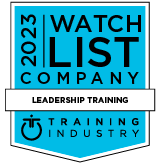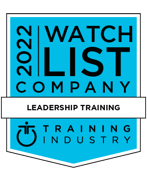How to Conduct an Organizational Culture Assessment

Contents
When was the last time you gave your organization a health check-up? An organization can look like the picture of health to the outside, with high numbers and ticked boxes. But inside can tell a different story…
Signs of a poorly culture can be subtle. It’s why organizational culture assessments should be conducted regularly, to keep a finger constantly on culture’s pulse.
92% of employees surveyed ― across all workplace generations ― said that culture has an impact on their decision to remain with an employer. And 29% of millennials are planning to leave their company within a year because it doesn’t match their values (EY).
If you want to keep your best people, learning how to assess organizational culture properly is an essential skill to learn.
Defining Organizational Culture and Its Importance
Culture: A Mirror of Leadership and Values
Culture is an echo of how leaders behave, what they celebrate, ignore, how they react to errors, and how they relate to others. Employees learn by observation what is rewarded and what is punished; what is acceptable and what is unacceptable.
So, if you have employees who are underperforming or behaving in a troubling way – look at leadership first and conduct an organizational culture assessment. Has your environment become competitive or unsupportive? Is there a culture of blame? Are leaders setting unrealistic or unclear expectations? Maybe they have a ‘my way or the highway’ approach that’s dragging down team morale?
Ask yourself: is it really fair to expect employees to care about the mission or bring their best self every day to a culture like that?
Why Assessing Culture Matters in Every Organization
81% of workers who rated their organizational culture as poor indicated that their organization is not committed to improving culture (SHRM).
Assessing organizational culture stops negativity and workplace stress from turning nightmares into toxic realities. If you don’t know how to assess organizational culture, your workplace can quickly become a toxic environment, and you’ll soon see employee-shaped holes in the doors!
Before they escape, you’ll be looking at issues flying under the radar and snowballing, poor communication and friction between teams, and poor decision-making – inevitably leading to decreased productivity, poor employee wellbeing, and lower profits (SHRM).
Healthy cultures, on the other hand, create a 3x return to shareholders (McKinsey & Co.), and increase employee engagement, productivity, and retention (Columbia University). Empowered, happy employees help their co-workers 33% more often, achieve goals 31% more often, and are 36% more motivated in their work (Workhuman). But building high-performing cultures is impossible if you’re not regularly conducting organizational culture assessments.
Practical Steps to Conduct an Effective Culture Assessment
Utilizing Tools and Surveys for Comprehensive Assessment
What motivates employees? How is failure addressed? Do leaders walk the talk? Are there any organizational subcultures? Do employees feel respected and heard? What exactly needs to change?
The only way to answer these is to ask people! Workplace culture assessments look beyond absenteeism and productivity metrics. Assessing organizational culture is to facilitate a two-way discussion, keeping track of feedback to create an environment of transparency and trust.
Helpful culture assessment tools include:
- Values assessments are not a pop quiz on values; they evaluate whether employees and leadership are actively livingIt creates opportunities to positively reinforce aligned behavior and correct any misaligned behavior.
- Culture walks do what it says on the tin. Embrace your inner Attenborough and walk around to observe signs of culture. Are people interacting with each other? How are they talking to each other? How are they using workspace?
- Employee engagement surveys aid in assessing organizational culture by shining a light on employee satisfaction and wellbeing. They’re great ways to track trends over time and inform strategic planning and initiatives.
- Shorter surveys, like NPS and pulse surveys, can quickly shine a light on how employees are feeling, offering insights for fast action.
- External, third-party feedback can offer an unbiased, fresh perspective on how employees feel about your culture. It’s a chance to gain deeper awareness of team challenges, gather data on cultural norms, and isolate leadership challenges to track and measure change.
At DX Learning, we have a series of pre and post culture assessment tools to ensure that our signature CARE to Win platform is a permanent part of your leadership and culture. Including: CARE Engagement Survey, CARE Cultural Diagnostic Survey, CARE 360 Behavior Tracker, ProHabits Reinforcement Technology, and CARE Coaching. And no, not the cuddly kind of care – clarity, autonomy, relationships, and equity®, the human skills to get the hard stuff done.
Analyzing Results and Implementing Change
360 feedback surveys provide a well-rounded perspective on culture – and leaders’ – strengths, weaknesses, and areas for development. Organizational culture assessments like this help to identify patterns and determine the root causes of issues.
Once you have their feedback from workplace culture assessments, let employees know their input is important, by acting on it! Develop a strategic plan, set realistic goals, and make feedback the norm. People will be more willing to contribute ideas in the future if they trust they can voice concerns in a safe setting, and have the power to contribute to real change.
The Role of Every Employee in Culture Assessment
Cultivating Culture Champions Across the Organization
It’s your culture champions who really get mountains moved and promote a sense of ownership for that culture in everyone. They are much more engaging than an email from HR, and a key ingredient to building high-performing cultures. Learn how to spot culture champions here.
When conducting your organizational culture assessment, look for those with influence, who people respect. Make it easy for them to champion too: empower them with the knowledge, skills and the tools to make a real difference. That means clearly defining and communicating values, and encouraging open communication and transparency, so employees feel confident in sharing thoughts and ideas.
Provide mentoring opportunities and educate people about the importance of assessing organizational culture – and their role in shaping that culture. And always assess and adjust strategies based on feedback, so your culture remains dynamic and aligned to evolving needs.
Encouraging Participation and Feedback in Assessments
Psychological safety plays a crucial role in building high-performing cultures. Like seedlings, people need the right conditions to grow and flourish. It’s up to leaders to make nurture a space where everyone feels safe to be themselves and speak up without fear of retribution. Make it clear: we don’t tolerate anti-culture behaviors, and it’s essential to call those behaviors out when we see them.
By carrying out organizational culture assessments, being receptive to feedback, and giving your employees a say in the way things are, you’re communicating that they matter. People will feel encouraged to maintain that safe space for themselves and everyone around them.
The CARE Playbook: A Framework for Cultural Health
Understanding CARE: Clarity, Autonomy, Relationships, Equity®
DX Learning's The CARE Experience® is based on a 6-step methodology for accelerated behavior change, grounded in neuroscience. It focuses on four core elements of higher performance – Clarity, Autonomy, Relationships and Equity – to help teams and organizations grow.
Each of our experiences expertly balances immersive self-discovery techniques with the latest research into how the brain learns and works, to help leaders break up with their bad habits for good.
Implementing the CARE Playbook in Organizational Assessments
A great culture needs values that have connections to Clarity, Autonomy, Relationships, Equity, and leaders who ensure they give just enough of each to their teams.
CARE helps managers, at all levels, in building high-performing cultures, full of teams that innovate, connect, and collaborate effectively, in a more human workplace. Teams that speak up early and often about any mistakes and issues, because their leaders lead with empathy and inclusion. It develops a sense of belonging and creates a psychologically safe workplace.
We use neuroscience-based training and experiential learning in assessing organizational culture, to build awareness of natural biases that cause people-first leadership blind spots. CARE inspires leaders to combat those biases with soft leadership skills.
Key Takeaways
An apple a day does not keep toxic culture away. Regular check-ups in the form of organizational culture assessments are essential. Leadership and culture mirror each other, so grasp the tools to measure it effectively.
Establish a collaborative, safe space, act on feedback, and cultivate a culture of CARE – because understanding your organization’s heartbeat paves the way for transformative leadership.
Get in touch to learn how CARE can transform your organizational culture assessments.
FAQs
What are the key components of an organizational culture assessment?
Organizational culture assessments evaluate the values, beliefs, norms and behaviors within a workplace, to understand and measure the cultural aspects that influence dynamics and performance. This process includes surveys, interviews and observations to gauge perceptions and practices.
How does the CARE playbook aid in assessing and improving culture?
It helps managers at all levels in building high-performing cultures, by leading with empathy and inclusion, to create a psychologically safe workplace, where teams can share opinions and speak up early and often about any issues.
Why is it important for every employee to be involved in culture assessment?
It’s vital because it transforms the culture assessment process into a collective adventure. You’re tapping into diverse viewpoints, fueling collaboration, and uncovering hidden gems of insight. It’s an inclusive approach that not only strengthens morale, but also sparks a shared commitment to owning and developing the culture into something extraordinary.
Insights

Subscribe to Our Monthly Newsletter!
For managers and talent professionals who truly believe in putting people first, the CARE to Win blog is your gateway to the latest insights on human-centric leadership. Join us as we champion the people first movement.
Need some time apart? Are we emailing you too often? Just give us your feedback, and we promise we’ll respond. We really do care. And if it’s still too much, just unsubscribe. It’s cool.



